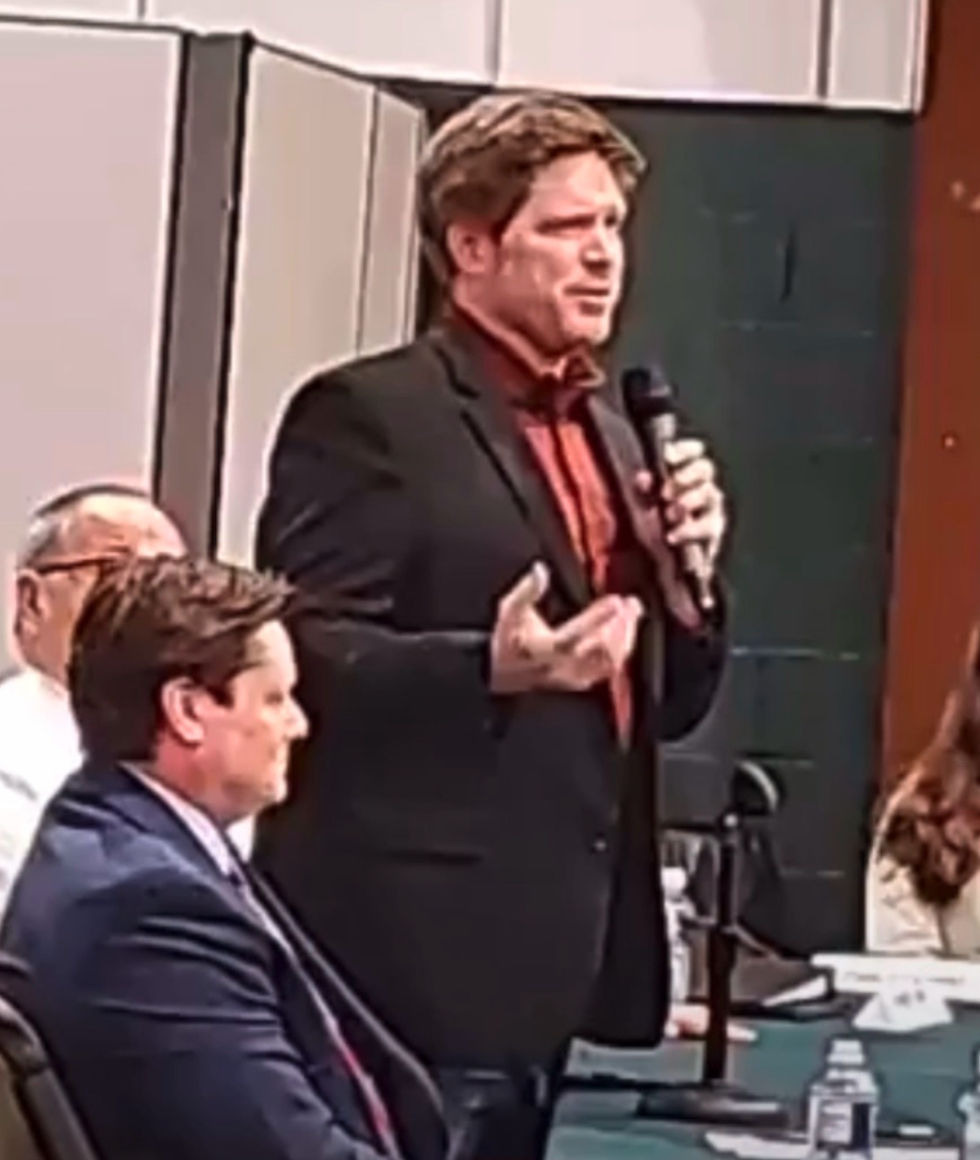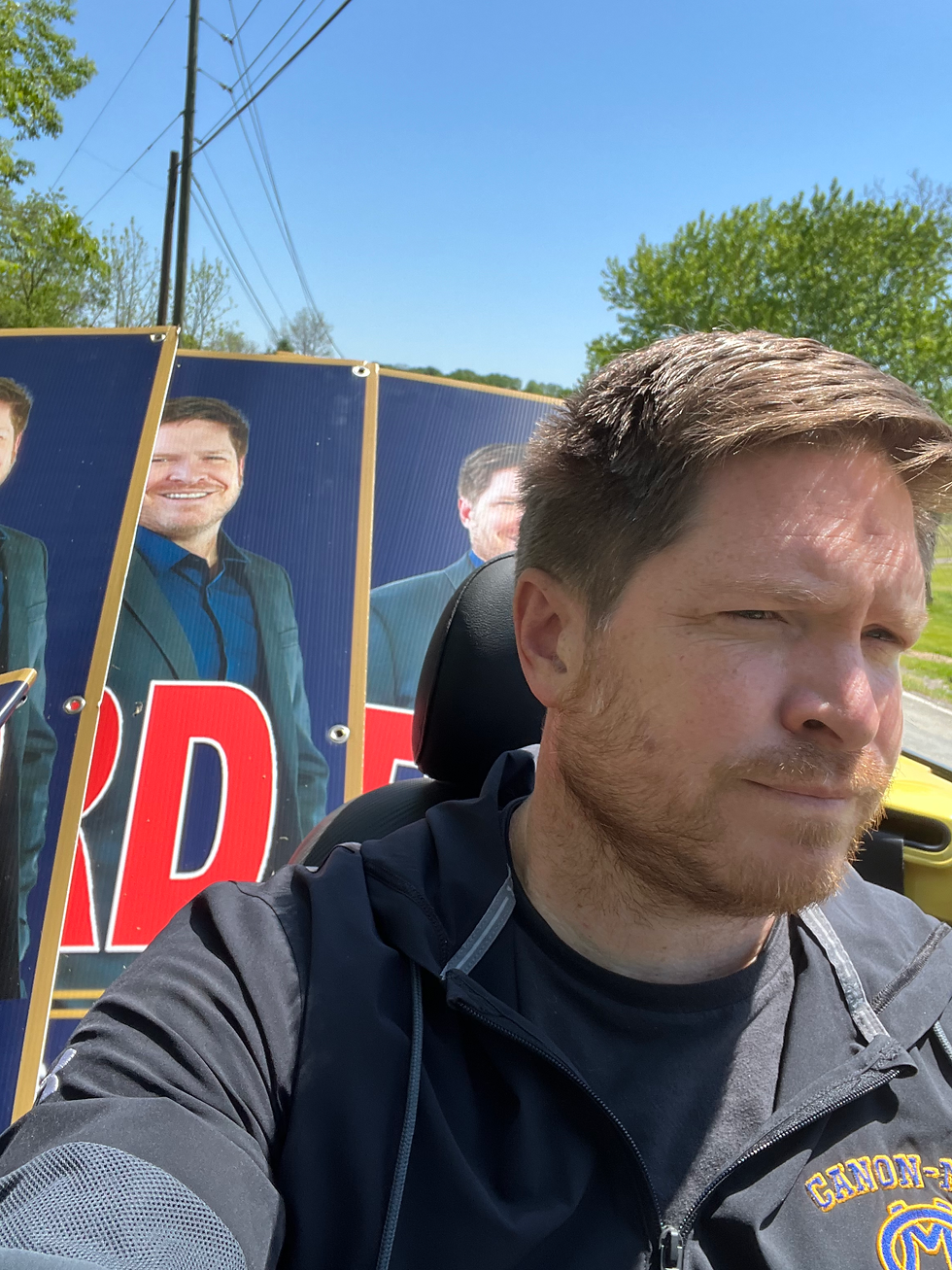The Beauty of Running for Local Office: Why Participation Matters More Than Victory in Local Elections
- Kevin Redford
- Feb 8
- 6 min read
As a former candidate for local office, I write this ahead of the upcoming primaries with a warning: If you’re often uninspired by the candidates on your ballot, now may be the time to throw your own hat into the ring. Democracy is not a spectator sport. From the very founding of our nation, citizen involvement has been the backbone of American government. It is no exaggeration to say that active participation is what sustains representative republics like ours. What is the point of this great experiment in self-governance if good people do not invest their time, talents, and energy to improve it for all? Running for local office—whether for school board, county commissioner, or township supervisor—is one of the most direct ways to engage in the process. While national elections dominate headlines, holiday conversations, and even keep many of us up at night, the decisions that affect our daily lives the most are made at the local level. The roads we drive on, the taxes we pay, the schools our children attend, and the safety of our neighborhoods are all shaped by local government—yet many of these positions sometimes go uncontested. Our nation's founders placed a heavy emphasis on civic engagement, believing that we should govern ourselves. As Thomas Jefferson wisely reminded us, “We do not have government by the majority. We have government by the majority who participate.” Yes, this is a call for more voting, but also more citizen participation in the process itself. Democracy is at its best when citizens, teachers, small business owners, concerned parents, and community volunteers step forward and serve.

In 2023, I ran for office for the first time, joining a crowded primary for an open county commissioner seat. I did not win. Yes, money, experience, and professional campaign teams can play a big role, but that shouldn’t discourage good people who genuinely want the best for their community from stepping up. Many positions do not require a heavy investment of money, but of time and dedication. Even in defeat, the lessons I learned remain invaluable for the future. What stood out the most were the voters—ordinary people who were interested in what I had to say, eager to meet a candidate, and engaged in the process. To this day, people still ask for my thoughts on local issues, even though I wasn’t elected. Running for office was an honor and a privilege, and it’s an experience I believe many more should have.
While my campaign wasn’t the traditional success story, it was one of the most rewarding experiences of my life. I didn’t have a big budget or a large team backing me, and I wasn’t exactly the favorite of my party leadership. In fact, I was even sued to be removed from the ballot, and when all was said and done, I finished last out of six candidates. But that doesn’t make me regret the experience one bit. I ran because I wanted to be part of the solution, and along the way, I met incredible people—both voters and fellow candidates. The process was tough, but it showed me that the value of running for office isn’t always measured by victory—it’s about the relationships you build and the opportunity to be involved in your community.
The Power of Meeting People Where They Are
One of the most rewarding aspects of running for office is the opportunity to meet people from all walks of life. Whether knocking on doors, attending local events, or sitting down for coffee, you gain insight into the hopes, struggles, and priorities of your neighbors. You hear stories of small business owners fighting to stay afloat, parents advocating for better schools, and retirees concerned about property taxes. These conversations not only inform a campaign—they shape the candidate. They serve as a reminder that every policy decision has real-world consequences, and public service is about listening, learning, and bringing people together to solve problems, not just playing a political game.
Engaging with Community Leaders and Decision-Makers

Running for office also offers a crash course in local governance, where you quickly learn who the decision-makers are, how policies are crafted, and which issues dominate the political landscape. You find yourself in rooms with city planners, school board members, law enforcement officials, and economic development leaders—people who shape the future of your town, whether you win the election or not. These experiences offer invaluable insight into how local government works and the impact it has on the community, no matter the outcome.
These relationships matter. Even if a campaign doesn’t end in victory, the connections made along the way often open doors to new opportunities for service. Some candidates go on to serve on advisory boards or committees, while others become passionate advocates for key community issues. By running for office, you earn a voice in the conversation—and that voice doesn’t disappear when the ballots are counted. In fact, service often leads to more opportunities for service, creating a cycle of continued involvement and impact in the community.
The Lessons in Losing (or Winning)
Running for office can be exhausting, expensive, and emotionally draining. Maybe things seem fine where you are, and you feel like you don’t have anything new to add or aren’t qualified. But as President John F. Kennedy said, "The time to repair the roof is when the sun is shining." Even if the challenges seem daunting, the real failure isn’t losing an election—it’s sitting on the sidelines, letting apathy or fear stop good people from stepping up. As a citizen, you have a place in the conversation if you're willing to earn it. In many ways, running for office is an act of faith—in the power of community, the democratic process, and the belief that, win or lose, participation makes a difference. As Theodore Roosevelt once said, “It is not the critic who counts; not the one who points out how the strong man stumbles, or where the doer of deeds could have done them better. The credit belongs to the one who is actually in the arena.” Every campaign raises awareness about important issues. Every candidate challenges the status quo in some way. And every election reminds us that our democracy thrives when it is shaped by all of us, not just a select few.
Why America is Stronger When We All Participate
Apathy is democracy’s greatest enemy. When good people choose not to run, when voters disengage, and when communities allow a small handful of people to make all the decisions, we lose something essential. As Margaret Mead famously said, “Never doubt that a small group of thoughtful, committed citizens can change the world. Indeed, it is the only thing that ever has.” Our country was built on the idea that leadership should not be reserved for the wealthy, the connected, or the career politicians. It should belong to the people. That’s why we need more everyday citizens to step up—not just those with political experience or deep pockets, but teachers, nurses, small business owners, and community volunteers. People who understand the struggles of working families. People who want to “be the change that you wish to see in the world,” as Mahatma Gandhi said. People who believe that public service is about serving others, not themselves.
Whether you’re considering running for office yourself or simply looking for ways to get more involved, remember this: America works best when we all participate. We are stronger when our communities reflect a diversity of voices, perspectives, and ideas. And we are better off when people of integrity and passion are willing to put themselves out there—not for power, but for the good of their neighbors. As Abraham Lincoln once said, “The best way to predict your future is to create it.” (Cue the patriotic music) So if you’ve ever thought about running for local office, I encourage you to take that step. Talk to current leaders. Learn about the issues. Get involved in your community. And most importantly, don’t let fear of failure hold you back. Because no matter the outcome, the simple act of running—of showing up and engaging with the people around you—is a victory in itself.






Comments